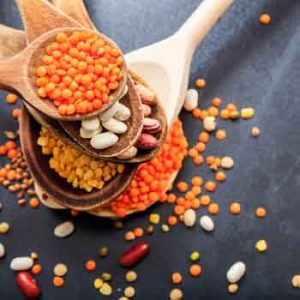
More evidence that low-calorie sweeteners are bad for your health
Studies show that artificial sweeteners can raise the risk of hypertension, metabolic syndrome, type 2 diabetes and heart disease, including stroke.

Natural Health News — The largest study to examine the effects of different sources of dietary protein found that a high intake of proteins from animal sources – particularly processed and unprocessed red meats – was associated with a higher mortality rate, while a high intake of protein from plant sources was associated with a lower risk of early death.
Results from the study – which analysed data from two long-term observational studies – appears in JAMA Internal Medicine.
Previous studies have promoted vegetarian diets for their health benefits, while others have cautioned against meat consumption for potential health risks.
Recent studies for example, suggests that a vegetarian diet could lower the risk of colorectal cancer and type-2 diabetes while other evidence suggests that higher red meat consumption (as opposed to poultry, fish, eggs, or dairy products) is linked to kidney failure.
Lowering risk of early death
» Many studies have looked at the question of meat versus vegetarian diets. Few have looked at this questions from the perspective of sources of protein.
» US researchers, analysing more than 30 years of data have found that, when it comes to early death from most causes, the source of protein in your diet can either be harmful or protective.
» In general their findings shows that animal source protein raised the risk of early death , especially in those with other lifestyle risks such as smoking of high alcohol consumption, whereas higher vegetable source protein in the diet could be protective in these people.
» Overall substituting vegetable-based sources of protein for animal-based ones was linked with a lower risk of death from all causes.
The current study which analyses more than 30 years of data from two large US studies, focuses on the types of protein we eat and its impact on health.
The researchers looked at the rates of death from all causes as well as form specific diseases, and at influential aspects of lifestyle and compared these to the participants’ diets.
Results showed that every 10% increase in animal protein (expressed as a proportion of total calories) was linked with a 2% higher risk of death from any cause and an 8% increased risk of death from cardiovascular disease.
This increased risk of death linked to eating more animal protein was more conclusive among those who were obese and those who drank larger quantities of alcohol.
In comparison, for every 3% increase in plant protein in the diet there was a 10% lower risk of death from all causes and a 12% lower risk of death from cardiovascular disease.
Again, the link between eating more plant protein and lower risk of death was stronger among those with lifestyle risk factors such as smoking and drinking or if they were overweight and /or physically inactive. Higher intake of plant protein was also more protective in people age 65+.
Protein sources matter
But the analysis also showed that not all proteins are created equal.
“Although substituting plant foods for various animal foods was associated with a lower mortality, red meat, especially processed red meat, showed a much stronger association than fish and poultry, which themselves were not associated with mortality” say the scientists.
They add that, “protein from certain fish, such as cod, has been suggested to improve the lipid profile, glycaemic control, and insulin sensitivity.”
The researchers also discovered that substituting just 3% of calories from animal protein with plant protein was linked with a lower risk of death from all causes.
One good source of vegetable protein is pulses. Indeed 2016 is the International Year of Pulses, focussing on the health and environmental reasons for eating more pulses. Whereas recent evidence suggests that our continued high intake of meat is contirbuting to obesity, other evidence shows that adding healthy yellow peas, chickpeas, navy beans and lentils to your diet can significantly reduce your risk of metabolic syndrome.
Many fo us are not yet in the habit of substituting plant for animal protein. However, the authors of the current study conclude: “Substitution of plant protein for animal protein, especially from processed red meat, may confer substantial health benefit. Therefore, public health recommendations should focus on improvement of protein sources.”

Please subscribe me to your newsletter mailing list. I have read the
privacy statement